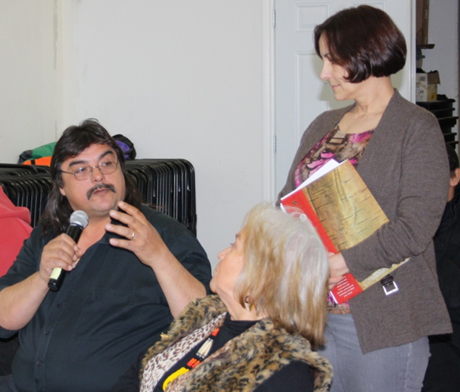Henvey Inlet looks at its own citizenship law and constitution

By Mary Laronde
On March 20, more than 30 citizens of Henvey Inlet First Nation engaged in discussions with Chief Wayne McQuabbie and Anishinabek Nation Commissioner on Citizenship, Jeannette Corbiere Lavell, on several issues relating to self-government, the Anishinabek Nation constitution, and First Nation constitutions and laws.
Of particular interest was the Anishinabek Nation Citizenship law and what it can mean to First Nations. Commissioner Lavell led the discussion on E’Dbendaagzijig “those who belong”, urging Henvey Inlet citizens to identify and embrace all their people regardless of Indian status and residency.
“We have the right to be who we are, Anishinabek, and to decide who belongs,” she said.
At present, Henvey Inlet is undertaking a review of its 1987 membership code which is based, in part, on Indian Act definitions and, by extension, blood quantum.
Chief Wayne McQuabbie explained, “We can recognize our non-status people as Henvey Inlet citizens, but Canada and Aboriginal Affairs and Northern Development Canada (formerly Indian Affairs) only provides the First Nations funding for status Indians.”
The Indian Act as a tool for assimilation and the extinction of status Indians was explained.
Chief McQuabbie stated that Henvey Inlet could develop a citizenship law that would suit the First Nation. Councillor Genevieve Solomon Dubois said, “Our people are our resources.”


